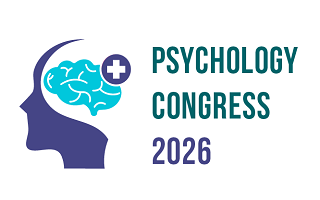3rd International Congress on
Psychology & Behavioral Sciences
March 26-27, 2026 | Osaka, Japan

Address: 1 Chome-9-15 Shinkitano, Yodogawa Ward, Osaka, 532-0025, Japan.
Psychology Congress 2026

University of Hong Kong, Hong Kong
Abstract:
Heart rate variability biofeedback (HRV-B) is a technique that has been shown to have benefits for both physical and mental health conditions. The aim of the present systematic review and meta-analysis is to describe the approach and examine the efficacy of remote HRV-B interventions for mental health symptoms, including depression, stress, anxiety, and sleep as well as heart rate variability (HRV), a measure of autonomic function. A literature search was conducted from five databases and identified 826 studies. After screening, eighteen studies with a total of 1,352 subjects were included in this systematic review and meta-analysis. Meta-analysis showed a medium effect size of HRV-B for improving both depression (g = -0.41[-0.049, -0.772], p = 0.026, I² = 72.623%, k = 10) and HRV (g = 0.443, [0.718, 0.167], p = 0.002, I² = 56.81%, k = 10) compared to control conditions. These results remained significant after sensitivity analyses excluding high-risk, non-randomized, and outlier studies. Effect for stress was not significant (p = 0.152, k = 8). Meta-regressions identified study and protocol characteristics as significant moderators of the effect on HRV, stress, and anxiety. Specifically, maximizing resonance, the screen being on the device, less lab visits, female gender, and less than twenty minutes of practice time per day were beneficial for the intervention effectiveness. Overall, this study indicates that HRV-B is an effective intervention for decreasing depressive symptoms and increasing HRV across populations, and some study variables may influence the intervention outcomes.
Biography:
Sophia Vann Adibe is an MPhil student in the Department of Psychiatry at the University of Hong Kong. She did her Bachelor’s of Neuroscience at the University of Chicago and graduated in 2020. Her research focus is on the connection between the psychological and physiological, specifically looking at heart rate variability as a physiological marker of psychological health
